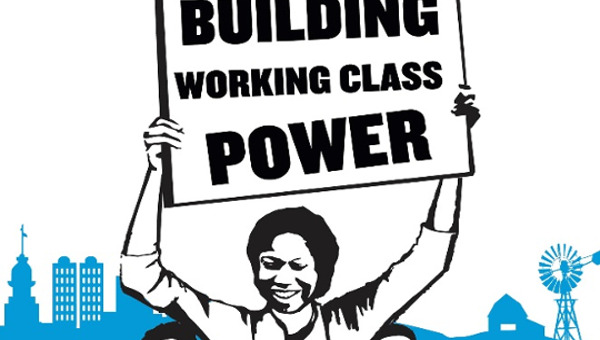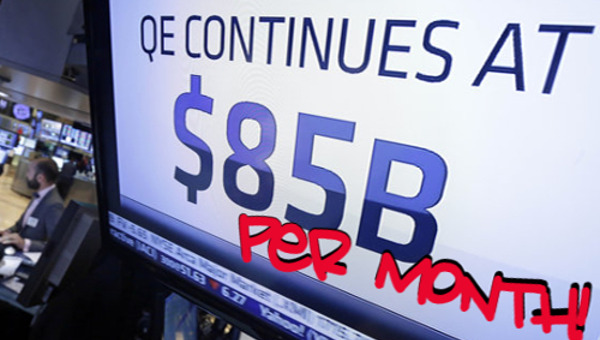Perspectives on the U.S. Financial Crisis
It is time to take stock. The centrality of the American economy to the capitalist world – which now literally does encompass the whole world – has spread the
financial crisis that began in the U.S. housing market around the globe. And the emerging economic recession triggered in the U.S. by that financial crisis now threatens to spread globally as well.
Capitalism has had an incredible run – politically and culturally as well as economically – since the stagflation crisis of the 1970s. The resolution of that crisis required, as economists put it at the time, ‘reducing expectations’ of the kind nurtured by the trade union militancy and welfare state gains of the 1960s. This was accomplished via the defeats suffered by trade unionism and the welfare state since the 1980s at the hands of what might properly be called capitalist militancy. This was accompanied by dramatic technological change, massive industrial restructuring alongside labour market flexibility and the over–all discipline provided by ‘competitiveness.’
That discipline brought with it an enormous increase in economic inequality, the spread of permanent working class insecurity and the subsumption of democratic possibilities to profitable accumulation. But this did not mean capitalism was no longer able to integrate the bulk of the population. On the contrary, this was now achieved through the private pension funds that mobilized workers savings, on the one hand, and through the mortgage and credit markets that loaned them the money to sustain high levels of consumer spending on the other. At the centre of this were the private banking institutions that, after their collapse in the Great Depression, had been nurtured back to health in the postwar decades and then unleashed the explosion of global financial innovation that has defined our era.
The question begged by the current crisis is whether capitalism’s capacity to integrate the mass of people through their incorporation in financial markets has run out of steam. That the fault line should have appeared in ‘sub-prime’ mortgage loans to African-Americans is hardly surprising – this has always been the Achilles’ heel of working class incorporation into the American capitalist dream. But an economic earthquake will actually only result if there is a devaluation of working class assets in general through a collapse of housing prices and the stock and bonds in which their retirement savings are invested.
The state and financial crises
We are by no means there yet. The role being played to prevent just this by the Federal Reserve, very much acting as the world central bank in light of the global implications of a U.S. recession, should once and for all dispel the illusion that capitalist markets thrive without state intervention. It was through the types of policies that promoted free capital movements, international property rights and labour market flexibility that the era of free trade and globalization was unleashed. And this era has been kept going as long as it has by the repeated coordinated interventions undertaken by central banks and finance ministries to contain the periodic crises to which such a volatile system of global finance inevitably gives rise.
The Fed has repeatedly poured liquidity into its financial system at the first sign of trouble. The question is whether the capacity of the system to go on integrating ordinary Americans though the expansion of investor and credit markets in this way has reached its limit. This was indeed suggested by the Bush administration’s sudden (non-military) Keynesian turn with a $150 billion fiscal stimulus. However, that fiscal stimulus at the federal level may be undone at the state level, especially with municipal government cutbacks, given their massive dependence on property taxes. The way financial institutions that specialized in selling risk insurance on municipal bonds were enveloped in the credit crisis has further compounded the problem. This indeed brings to mind the extent to which it was municipal governments that were on the front lines of the Great Depression.
But while the U.S. may very well move into a recession, which even when it ends may mark the beginning of a new era of slower growth, this is very different from a Depression. While there is no doubt that mortgages in black communities and for the working poor more generally will be tightened, it seems most likely that banks, competing for markets, will continue to extend credit to working families more generally. We need to remember that the top twenty per cent and their families are extravagant consumers. While growing inequalities are grotesque, the left has consistently underestimated the extent to which the rich can sustain overall spending. The ‘correction’ in the dollar (alongside the strength of U.S. manufacturing in the higher-tech sectors) has already led to offsetting growth in markets abroad; U.S. exports have been growing at double-digit rates over the past few years.
Finally, the U.S. state may revive its capacities for substantive infrastructural spending, if only to stimulate the construction industry now that the housing boom is over. Indeed, even from the perspective of competitiveness and accumulation there is a long-neglected need to rebuild U.S. infrastructure – as the collapsed levies of New Orleans and the collapsed bridges of Minneapolis dramatically showed. The type of state intervention that brought us financial globalization is not well suited to this, but this crisis may finally force some renewal of state capacities in this respect, even within the overall framework of neoliberalism.
Finance and Neoliberalism
There is an understandable tendency on the left to take hope in capitalism’s current dilemmas. The extreme liberalization of finance (and along with it the era of neoliberalism) seems discredited. Finance today appears as no more than high-flying speculation – absurdly wasteful and ultimately not sustainable. U.S. corporations remain profitable, but with the credit crunch, who will buy the goods? Discredited as well, it therefore appears, is the U.S. capacity to keep its own house in order, never mind lead the process of globalization. Yet before we assume that the openings created by this crisis place us on the verge of a matching new oppositional politics, we need a more careful reading of our times. While the new openings provide the space for a new politics, we need to soberly appreciate the problematic link between such openings and a radical response.
To begin with, as immoral and irrational as finance might seem, financialization has been absolutely essential to the making and reproduction of global capitalism. Second, the growing consensus that finance must be re-regulated is hardly an attack on finance or neoliberalism more generally. Rather, it is about the engineering of finance so it can continue to be ‘innovative’ in the service of both itself and non-financial capital. Third, whatever problems the U.S. currently faces, its dominance will not fade because of a crisis in housing or a lower exchange rate; it does us no good to underestimate the staying power of the American capitalist empire.
It is not only finance but capitalism in general that rests on speculation. Behind a new firm or a new product rests the ‘speculation’ that it can be sold at a cost and price that generates profit. Behind the distinction between finance and the ‘productive sector’ is therefore something else: the notion that finance speculates in pieces of paper, not in providing goods or real services; it is a parasitic drain on the economy, not a constructive addition to it.
The problem with this line of thinking is that it mistakes what is rational from the perspective of certain moral criteria with what is rational within capitalism. The financial system is necessary to capitalism’s functioning. The discipline finance has imposed in the neoliberal era on particular capitalists and workers has forced an increase in U.S. productivity rates by way of increased exploitation, the more efficient use of each unit of capital, and the reallocation of capital to sectors that are most promising – all from the standpoint of profits, of course.
The penetration by American finance of foreign countries and the inflow of foreign capital into the U.S. has given the U.S. access to global savings, shored up its role as the greatest global consumer and reinforced the U.S. state’s power and options. Especially important, financial markets have come to provide non-financial corporations with mechanisms for managing their risks, and comparing and evaluating diverse investment opportunities in a highly complex global economy. Absent this role, globalization – at least to the extent we have experienced it – would not have been possible. Finally, as emphasized earlier, the ‘democratization’ of American finance has given workers access to finance as savers and debtors, thereby contributing to their integration into, and dependence on, each of capitalism and finance.
This does not mean that the explosion of finance is not a highly contradictory process. Highly volatile financial markets inevitably generate financial crises. Rather, it shifts the question from whether financialization is irrational to whether its contradictions can be managed insofar as the crises can be contained. What working classes do in this context will be crucial to answering this question.
The Dialectics of Regulation
Finance cannot exist without regulation and the U.S. financial sector, even before the latest crisis, was the most heavily regulated of any section of the U.S. economy. In fact, the dynamics of finance cannot be understood apart from how regulation shapes financial competition, how banks and other financial institutions try to escape or reshape that regulation, and the state’s subsequent counter-responses. The current dilemma for American regulatory institutions lies in how to re-regulate finance so as to overcome its costly and dangerous volatility without undermining finance’s needed innovative capacity.
We need to be clear that this is about re-engineering finance to strengthen capital accumulation, not control it in the name of a larger public interest. To place democratic regulation of finance on the agenda would require asking: ‘regulation for what purpose?’ and so would mean going far beyond finance itself. It would mean raising the fundamental question of social control over investment and therefore get to the heart of power in a capitalist society.
In the context of the failed promises of the past quarter century and the current crisis, to see the above issue go completely unmentioned in the Democratic primary debate may not be surprising given the absence of even a trade union campaign around this, but it bespeaks an impoverishment of American politics that in fact goes all the way back to the New Deal. The issue of economic democracy that had been placed on the political agenda alongside the New Deal’s public infrastructure projects was set aside for the remainder of the century after the FDR administration’s self-described ‘grand truce with capital’ in the late 1930s.
It will, therefore, not do to resort to the abstractions and obfuscations of calling for ‘re-regulation’ or a ‘new, new deal.’ It is the undemocratic power of private control over investment that needs to be put on the agenda.
American Empire in Crisis
Four particular aspects of the limited fall-out from the present crisis demand more serious reflection on the left. First, the fact that this crisis surfaced in the context of strong profits and low debt loads in the non-financial sector is important, and this accounts for the limited damage thus far.
Second, it is notable that despite the IMF calling this the most serious banking crisis since the Great Depression, we have not seen a series of bank failures. This is certainly linked to the interventions of the U.S. Fed, but it also speaks to the strength of private U.S. financial institutions. In no other country could such a crisis have unfolded without massive financial bankruptcies.
Third, it is especially worthy of note that no major state saw an opportunity in the crisis to challenge or undermine the American state. Rather, their integration into global capitalism meant that they identified this crisis as their crisis as well. They effectively recognized the U.S. central bank as the world’s central bank and cooperated with it in coordinating internationally repeated provision of liquidity to the banks. As in the previous instances of financial crises during the 1980s and 1990s, this reproduced and extended the American state’s leading role in managing global capitalism.
The fourth, and most important factor is the remarkable ‘imperial flexibility’ the U.S. has by virtue of the weakness of its working class. Had, for example, U.S. workers insisted on higher wages to compensate for rising food and oil prices and the devaluation of their homes and taken advantage of the competitive space offered by a falling dollar, the Fed would have had to cope with the fear of inflation and this might have meant higher rather than lower interest rates. And that could very well have aggravated the crisis and risked a financial meltdown. But rather than the working class demanding more, it in fact showed restraint or, in the case of the autoworkers, accepted the greatest concessions the union has ever made.
The more important question is, therefore, not the economics of crisis but its politics. How will the working class respond to the crisis? If credit continues but becomes more costly; if the loss of private pensions, negotiated health care, and the devaluation of homes force people into having to reduce consumption to shore up their savings; if food and oil prices leave less discretionary spending – if this is the near-term future, will workers rebel? Or will workers once again tighten their belts to preserve what is left from their past gains? And if frustrations are expressed politically, will the politics be limited to a longing for the good-old days before the crisis or before Bush?
Absent what Alan Sears, at the recent Great Lakes Graduate Students Conference at York, called ‘an infrastructure of resistance’, any opposition that does surface is most likely to be localized and contained rather than built on. A coherent alternative is not just a set of economic policy proposals but a political movement that can develop the popular appreciation and capacities for radical democratic control over investment. There should be no illusion that a recession, or even a depression, will necessarily bring the issue of economic democracy back onto the U.S. political agenda. It would require a transformation of American politics to do so – and that, like the current economic crisis, would as well have global implications. •
A version of this article appears in Canadian Dimension, July-August, 2008, canadiandimension.com.





